June 24, 2025 | 00:29 GMT +7
June 24, 2025 | 00:29 GMT +7
Hotline: 0913.378.918
June 24, 2025 | 00:29 GMT +7
Hotline: 0913.378.918
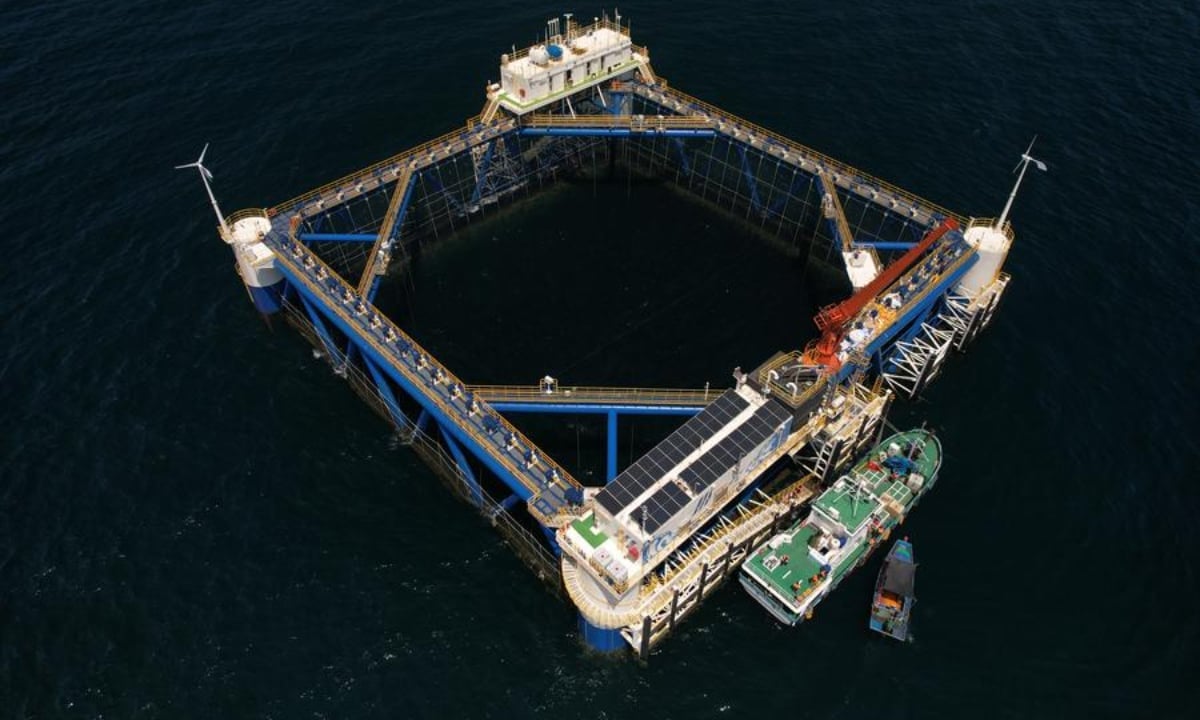
This file photo shows a marine ranch with eight giant aquaculture cages located 42 nautical miles off the coast of Yantai in east China's Shandong Province.
The construction of marine ranches, dubbed "blue granaries" in the vast blue ocean, highlights the nation's efforts to diversify food supplies. With more investment and innovative technologies, China's marine ranching industry is playing a role in strengthening food security.
FOOD SECURITY
Chinese leaders have underscored the importance of utilizing both land and sea resources to enhance food production to feed a population of over 1.4 billion.
This year's "No. 1 central document" stresses that work must be done to build a diversified food supply system and adopt an all-encompassing approach to agriculture and food.
It says that efforts will be made to expand food resources through multiple channels, including promoting the high-quality development of fisheries and supporting the development of deep-sea and far-sea aquaculture and the construction of marine ranches.
In recent years, marine ranching has gained momentum along China's coast. In 2024, the city of Shanwei, in the southern province of Guangdong, invested more than 2 billion yuan (about 279 million U.S. dollars) to build eight marine ranches as well as cold chain and sales facilities.
To date, China has built more than 180 national-level marine ranches. The eastern province of Shandong ranked top with 71 national-level marine ranches, accounting for 38 percent of the country's total, said Zhang Jiandong, head of the Oceanic Administration of Shandong Province.
SMART AQUACULTURE
The technological advances, including automated feeding and underwater imaging systems, have transformed the aquaculture industry.As the spring aquatic farming season started recently, Liu Yulei started his work on a marine ranch with eight giant aquaculture cages located 42 nautical miles off the coast of Yantai.
Each cage, 68 meters long and wide, could enclose 94,000 cubic meters of seawater, providing an optimal environment for 1 million fish with an annual fish catch of 1,000 tonnes.
"The fish farm is built here with Class I water quality and suitable temperature and salinity," Liu said. "With strong currents moving at 1.5 meters per second, the water in the cage could be completely refreshed within dozens of seconds, much more frequently than in traditional aquaculture facilities.
"Modern technology has made fish farming more efficient. "Work on the marine ranch is busy but far easier than traditional fish farming. Only four workers can oversee a cage," Liu added.
Each giant cage is equipped with advanced sonar, lidar and binocular vision systems that allow workers to monitor the fish population, distribution and health, equipment, water quality, hydrology, and meteorological conditions in real time.
"We used to lack proper feeding knowledge, which led to excessive food waste accumulating on the seabed. Now, with scientific breeding, we have significantly improved both quality and output while also protecting the marine environment," said Luan Jianguo from another marine ranch off Changdao Island of Yantai.
A local fishing company purchases juvenile fish of certain sizes from local seafood farmers. The partnership means a faster return on investment, lower financial risks, and a larger seafood production with better quality.
NEW OPPORTUNITIES
Marine ranching also creates new business opportunities as some ranches offer travel services to tap into the consumer market better.
Off the coast of Yantai's Laishan District, the "Genghai No. 1" ecological marine ranch complex integrates aquaculture and tourism facilities to generate additional revenues.
On weekends, tourists visit the complex for an immersive marine experience. On the main deck, visitors can engage in interactive activities such as a "deep-sea elevator" simulation using VR and AR devices. They can also participate in recreational fishing and enjoy the sea view."
We provide 71 sea-view hotel rooms, and guests can also enjoy freshly caught seafood at our canteen," said Yan Haidong, deputy general manager of Shandong Ocean Harvest Corporation, which operates the complex.
Low carbon is also at the core of the complex's operation. "Our total installed solar and wind power capacity is 426 kW, with power generation of approximately 500,000 kWh annually," Yan added.
Global Times
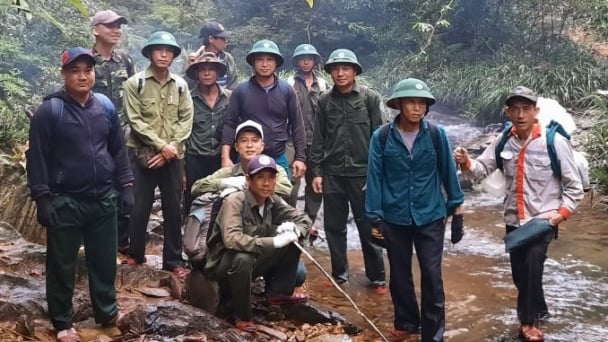
(VAN) All parties have acknowledged the barriers in mobilizing finance for conservation, proposing detailed initiatives. One of the most effective methods is to employ natural-based solutions.

(VAN) Vietnam is the country with the highest diversity of primate species in Southeast Asia, but most of them are seriously threatened, creating an urgent need for conservation efforts.
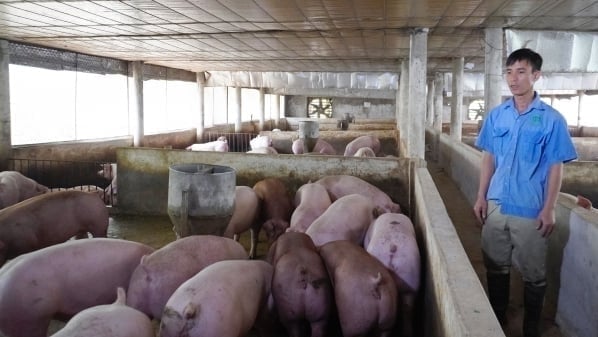
(VAN) Livestock farmers are still hesitant to use the new ASF vaccine products, mostly waiting for responses from large businesses before making a decision.
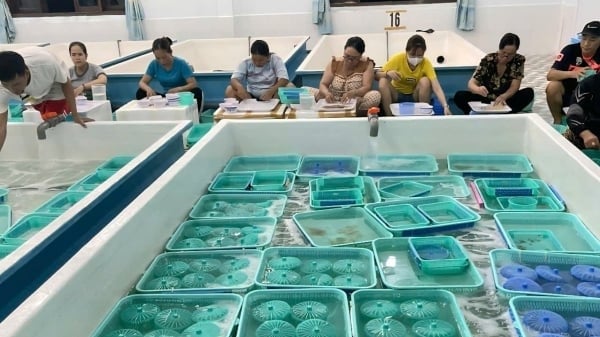
(VAN) Khanh Hoa and Phu Yen continue to strengthen inspection and control of lobster seed circulation in the area, and strictly handle violations.
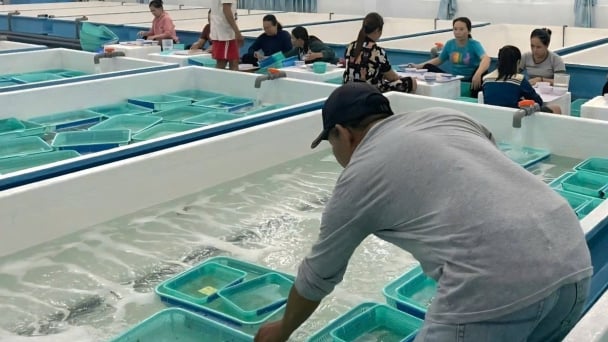
(VAN) Phu Yen and Khanh Hoa recently discovered many batches of lobster seeds of unknown origin. The authorities quickly moved and handled it as per regulations.

(VAN) Thanks to Ninh Thuans’s digitization of shrimp seed quarantine declarations, the procedures for payment and result reception are simpler and quicker.
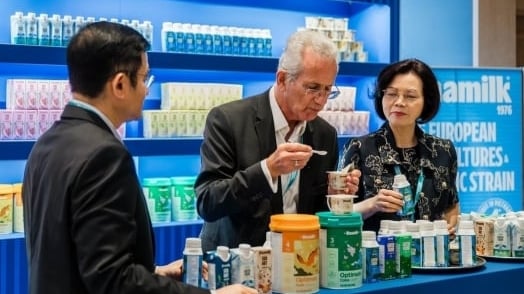
(VAN) In Amsterdam, the Netherlands, the 18th Global Dairy Congress 2025 took place from June 18-19, where Vinamilk won many grand awards.